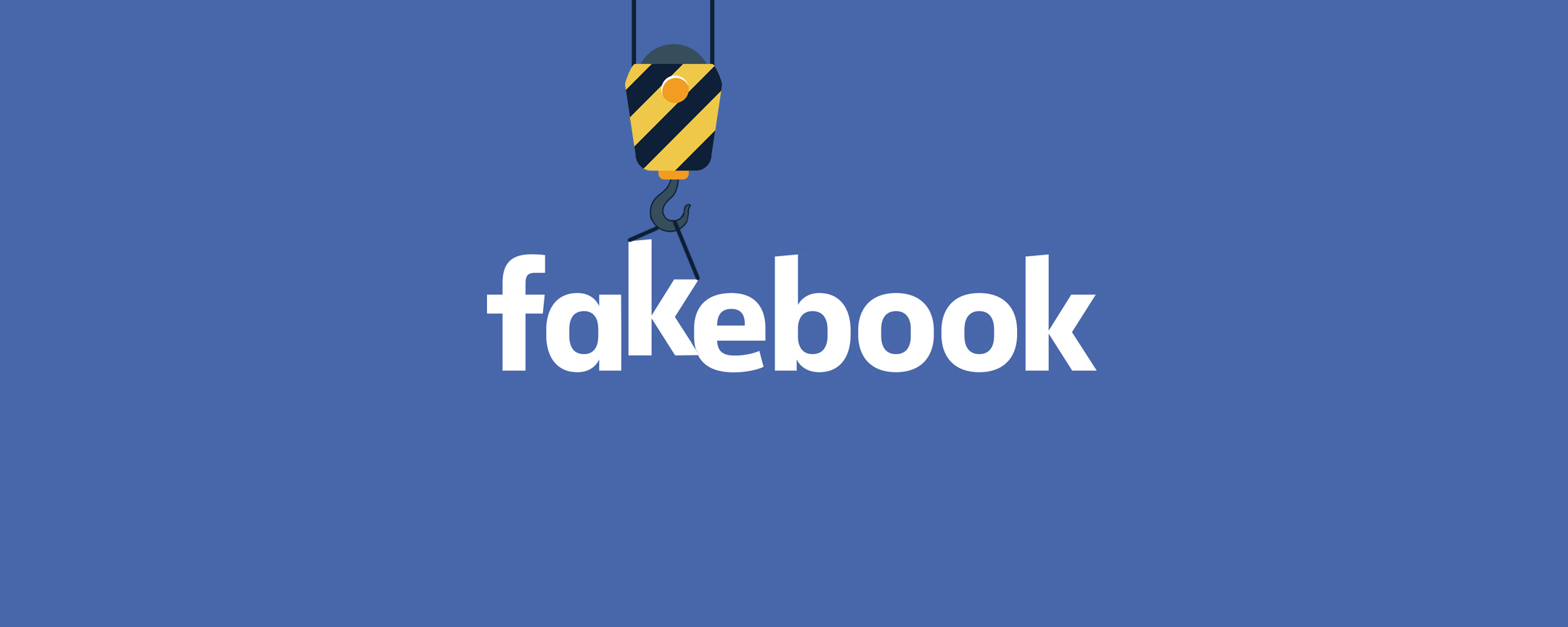The myth of election-altering 'fake' Facebook news stories
Trump's win isn't Facebook's fault


A free daily email with the biggest news stories of the day – and the best features from TheWeek.com
You are now subscribed
Your newsletter sign-up was successful
When you're hit by in an unanticipated setback, the easiest way to cope is by blaming someone else.
In these early, raw days after the election, it seems everyone has a theory about why Hillary Clinton lost to Donald Trump. For example, Clinton herself blames FBI Director James Comey. For its part, the media has found its own absurd scapegoat: Facebook.
Indeed, since the election, we have been treated to a spate of articles blaming Facebook, and specifically blaming "fake news stories" on the social network, for Trump's rise. Eventually, Facebook founder Mark Zuckerberg even weighed in:
The Week
Escape your echo chamber. Get the facts behind the news, plus analysis from multiple perspectives.

Sign up for The Week's Free Newsletters
From our morning news briefing to a weekly Good News Newsletter, get the best of The Week delivered directly to your inbox.
From our morning news briefing to a weekly Good News Newsletter, get the best of The Week delivered directly to your inbox.
After the election, many people are asking whether fake news contributed to the result, and what our responsibility is to prevent fake news from spreading. These are very important questions and I care deeply about getting them right. I want to do my best to explain what we know here.Of all the content on Facebook, more than 99 percent of what people see is authentic. Only a very small amount is fake news and hoaxes. The hoaxes that do exist are not limited to one partisan view, or even to politics. Overall, this makes it extremely unlikely hoaxes changed the outcome of this election in one direction or the other. [Mark Zuckerberg]
Zuckerberg is being charitable. Allegations that fake news stories on Facebook tipped the election to Trump are nonsense on stilts.
The Democratic Party chose to run a historically unpopular candidate who is the very embodiment of our self-dealing, out-of-touch elite. And the Republican Party ran a candidate who, despite his titanic flaws, is an honest-to-God savant at getting free media. And we're going to lay the blame for Trump's rise at Facebook's door? Really?
All newish forms of media encourage moral panics. Think back to before Facebook, when we were told that blogs were destroying popular discourse and feeding fake news into the popular bloodstream. In reality, blogs have been a boon to public discourse, surfacing countless intelligent voices that would have otherwise never found a publishing outlet.
And while the evidence is murky (because Facebook keeps tweaking its News Feed algorithm), most of the signs suggest that Facebook actually works against the trend of people forming self-selecting bubbles. The peers we interact with in daily life — friends, coworkers, the people we date — are usually part of our sociological bubble, but our Facebook networks, which include hundreds of "friends," also include people from outside those circles who post different views and different kinds of content.
A free daily email with the biggest news stories of the day – and the best features from TheWeek.com
Using the old left adage that everything is a power play, it's hard to read this manufactured controversy as anything other than a desperate ploy by a caste (the coastal media) to maintain its hold over the levers of information, married to a howl of outrage at the idea that the little people might have access to articles and ideas that haven't been "vetted" for "fairness" by said caste.
Who should do the vetting, if not Facebook's algorithm? The folks who selected Facebook's trending topics to get rid of news stories that didn't show liberal bias? The wonderful explainers at Vox who still don't seem to know the difference between DNC talking points and reality? The people at CNN who gave Donna Brazile debate questions in advance? The people who participated in a de facto media blackout around Kermit Gosnell? Who, exactly, should be the Ministry of Truth?
The worst part is, we've been through this before. In the 1980s, when talk radio became a huge media phenomenon, and a huge political asset to the right, the left tried to copy it and come up with its own version of talk radio. Yet liberal talk radio never took off, and has been an expensive failure, both economically and in terms of audience. Why is that? Because American progressives don't need an alternative media outlet to flatter their biases. The mainstream media already does that very well.
Never was the media so united in its opposition to a candidate as it was against Donald Trump. This time, it was not only all of the liberal media, but also all of the elite conservative media, and elite conservative pundits. I was one of them. And I stand by everything I wrote. And to the end, all of us dismissed the Trump phenomenon.
Trump is almost certainly going to be a bad president, and there's a distressingly high chance he might be one of the worst in history. But the phenomenon he represents is real, and one of the many things it has exposed plain as day is that the elite, including the media elite, live in a bubble of their own fabrication.
For that same elite, once exposed, to turn around and try to blame Facebook for making people live in bubbles boggles the mind, and could even help explain, at least in part, why Trump won.
Pascal-Emmanuel Gobry is a writer and fellow at the Ethics and Public Policy Center. His writing has appeared at Forbes, The Atlantic, First Things, Commentary Magazine, The Daily Beast, The Federalist, Quartz, and other places. He lives in Paris with his beloved wife and daughter.
